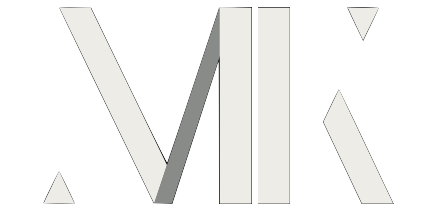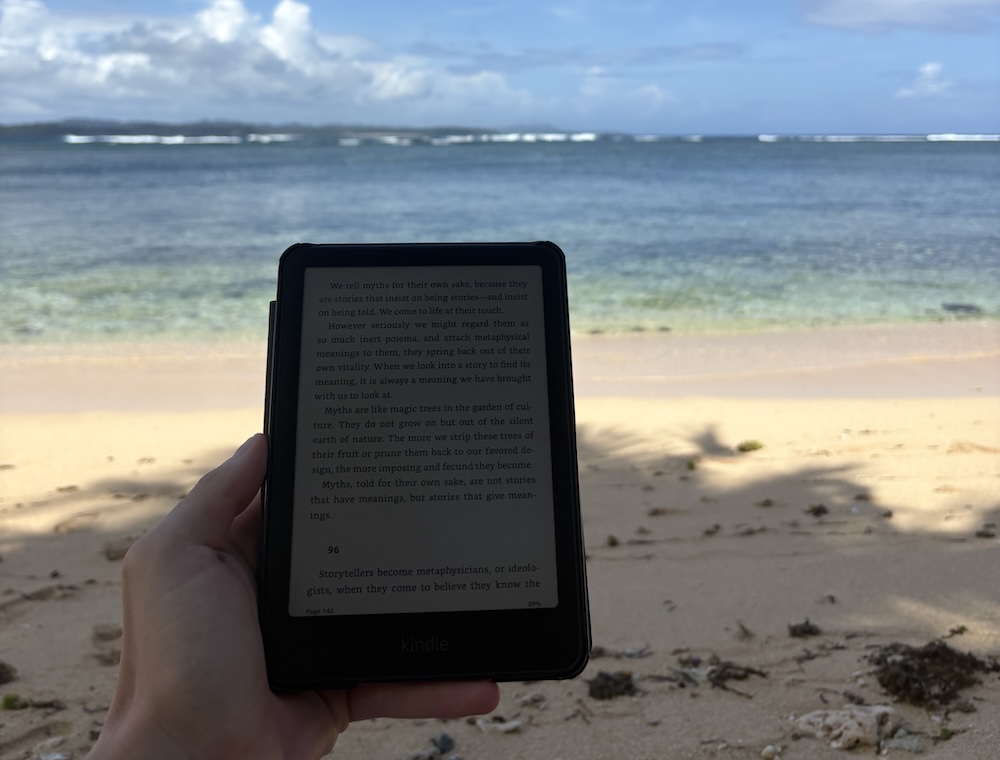I’ve always been skeptical of the word “passion.” It’s thrown around in career advice like it’s some mystical thing you’re supposed to discover through meditation or a personality quiz. The truth? Finding what drives you is messier, more iterative, and grounded in real experimentation – not epiphanies.
After years of building an agency, transitioning into product management at a fast-growing tech company, and now building my own products, I’ve learned that passion isn’t something you find; it’s something you uncover through systematic reflection and real-world testing. Here’s the process that worked for me.
7-Step Process for Finding Your Passion in Life & Work
Step 1: Subtract – This Subtraction Clears the Fog
Before you can figure out what energizes you, you need to identify what drains you. Most of us carry obligations, expectations, and “shoulds” that cloud our judgment. Start by asking:
- What am I doing only because I think I should? Not because it energizes me, but because it looks good on paper or someone else expects it.
- When in my career did I feel fake, drained, or small? These moments are data points. They tell you what to avoid.
- Which successes felt strangely hollow once I achieved them? If winning didn’t feel like winning, you were optimizing for the wrong metric.
This subtraction process is uncomfortable. You might realize you’ve been chasing things that don’t actually matter to you. But clarity requires cutting through the noise first.
Step 2: Finding Your (Childhood) Interests & What Gives You Energy
Once you’ve cleared the fog, look backward and inward. Your childhood self knew what felt like play before money, status, or other people’s opinions entered the picture.
Identify your values:
- What principles are non-negotiable for me?
- Understanding your values helps you filter out activities and goals that don’t resonate.
Reflect on your hobbies and natural inclinations:
- What do I spend my free time doing – without anyone forcing me?
- What topics could I talk about for 30 minutes with zero prep time?
- When do people naturally think of me when a topic comes up?
Look at what you love:
- Scan your bookshelf, favorite films, or the last event you attended. Is there a common theme?
- What did I do as a child, long before external rewards mattered?
Listen to your body, not just your mind:
- Which work makes me lose track of time or forget to eat?
- Which people leave me energized instead of drained?
- If I had enough money to never work again, what would I still wake up and build anyway?
What helped me most?
I went through old photo albums from my childhood and teenage years. The patterns were obvious: I spent every available minute at the lakes in France, deeply connected to nature. I was happiest when building things in the real world – constructing huts in the forest, learning to sail and surf, spending hours on my bike or windsurfing. I never touched video games. The real world was more interesting.
I also noticed I was most alive in deep relationships and when working on tangible projects – playing drums in bands, organizing concerts, even building an events equipment rental business as a teenager which I eventually sold. These weren’t random hobbies. They were early signals.
Step 3: External Mirrors of Family & Friends
You undervalue what comes easily to you. That’s why external perspectives matter. The people closest to you see patterns you can’t.
Ask your 5 closest friends:
- When do you see me most alive, most “myself”?
- What do I do better or more naturally than anyone you know?
- If you had to bet on me building or creating one thing successfully, what would it be?
Ask your family:
- As a kid, what did I do endlessly without being told or rewarded?
- What qualities or talents stood out earliest to you?
- If you had to describe my “superpower” in one sentence, what would it be?
Patterns will emerge – often things you’ve dismissed as “not special” because they feel effortless to you.
For me, people consistently pointed out: I’m naturally extroverted and comfortable speaking publicly, I’m effective at getting things done, and I have a strong sense of fairness (which makes sense – I’ve always been driven to improve systems I find unjust).
Step 4: Discover Your Passion Through Real-Life Experimentation
Here’s the critical part most career advice skips: You don’t figure yourself out in theory. You learn by doing.
1) Focus on the process, not just the outcome:
Stop overthinking and start testing. The goal isn’t to find your passion before you start – it’s to build, ship, and iterate until patterns emerge.
- Try new things: Join workshops, take courses, build small projects, teach at a local school, record a podcast, volunteer, speak at events. The medium doesn’t matter. What matters is that you’re creating feedback loops.
- Seek out new experiences: Read books outside your usual genre, attend events in unfamiliar fields, join community groups.
- Talk to people: Connect with people doing work you’re curious about. Ask them what’s energizing and what’s draining.
2) Connect to what the world needs (pain & demand is real):
Passion without market demand is a hobby. Useful work requires solving problems people actually care about.
- Where do I feel anger or frustration about how things are done? If something bugs you enough, you might be the one to fix it. I’ve always been obsessed with systems that help people make better decisions – especially around careers and life direction.
- Play in spaces where you have unique leverage: Where do I have unfair advantages – specific knowledge, networks, timing, skills others lack?
- Read about high-impact careers: Explore frameworks like 80,000 Hours to understand which problems are both important and tractable. Then combine your unique leverage with a timeless high-impact problem, whether locally in your community or globally.
3) Refine and develop:
- Use career planning templates to map out potential paths. Experiment, then course-correct.
- Set goals and work towards them. Small steps build momentum and help you understand what feels right versus what doesn’t.
- Don’t put too much pressure on yourself. This takes time. Be patient and enjoy the process of learning over years.
- Focus on real-life projects that excite you. Follow your curiosity. Watch what energizes you versus what drains you.
My Personal Passion & Purpose Reflection
Here’s what I learned about myself through this process:
- I enjoy reflective writing; synthesizing my experiences and sharing learnings with others.
- I love building things. I spent my entire childhood constructing projects in the physical world; huts from natural wood, sailing, windsurfing, biking through forests. I was never interested in video games. The real world was more compelling.
- I’m truly energized on the water. Sailing and windsurfing open my heart. I feel most alive when I’m moving through nature.
- I’ve always been competitive. I was a South German champion in fin swimming, loved calisthenics, and constantly pushed myself physically.
- I seek to improve an unfair world. I hated being treated unfairly as a child, which became a core driver in my work.
- I played drums daily as a teenager and loved performing in concerts and organizing events – so much that I built and later sold an events equipment rental business.
- For years (ages 10-14), I wanted to become a pilot. Looking back, it wasn’t about flying – it was about exploring and getting to know the world. That pull toward living abroad stuck with me.
- I’m extroverted. Public speaking comes naturally, but detail-oriented tasks drain me. Publishing my master thesis in an academic journal taught me that clearly.
- People know me as someone who’s effective at getting things done.
- I’ve been fascinated by math, physics, and the universe since I was young.
Choosing the Right Career Path with a Passion Career Quiz
When I was working as a product manager in a tech startup, I hit a wall. I had done this reflection work, but I struggled to translate these insights into tangible career paths. Sitting at my desk, trying to brainstorm alone, wasn’t working.
I wanted a tool that went beyond the usual “personality career test” that asks surface-level questions about traits. After reading books like The Almanack of Naval Ravikant, So Good They Can’t Ignore You by Cal Newport, Ikigai, and the career frameworks from 80,000 Hours, I realized there was a better way.
I needed something that would prompt me to reflect on childhood interests, early signals, and what truly energizes me; what feels like play to me but looks like work to others. (I still don’t love the term “passion.” Every career path requires real work. Nothing is effortless. But I wanted to find a next step that felt aligned with where life was pulling me.)
I started experimenting with ChatGPT to brainstorm tangible ideas. The results were promising. So I built the product I wish I had when exploring my next career step. When I tested it on myself, it suggested careers for adventurous people and entrepreneurship – exactly what I’m doing now.
After validating the tool worked, I launched it publicly.
You can get your first test result for free:
👉 Try the “What Is My Passion Quiz” & Find A Job You Love
mypassion.ai guides you through the reflection process I’ve outlined here; childhood interests, what you do when nobody is watching, what gives you energy. It’s not magic. It’s structured introspection paired with AI-powered synthesis.
Sources
- Robert Greene, Mastery
- Naval Ravikant, The Almanack of Naval Ravikant
- Cal Newport, So Good They Can’t Ignore You
- Ikigai
- Benjamin Todd, 80,000 Hours Career Guide – Career Planning Process | Career Reviews


![Read more about the article Personal Self Reflection Template [Free Download PDF/Docx]](https://marcokohns.com/wp-content/uploads/2025/12/personal-reflection-template-300x226.jpg)


This post really resonates with me, especially the idea that passion is a product of real-world testing rather than some sudden epiphany. The subtraction step makes total sense—once we let go of what doesn’t serve us, it clears the path for clarity. It’s a messy journey, but definitely worth it.
Pingback: Should I Quit My Job? A Framework for Big Life Decisions